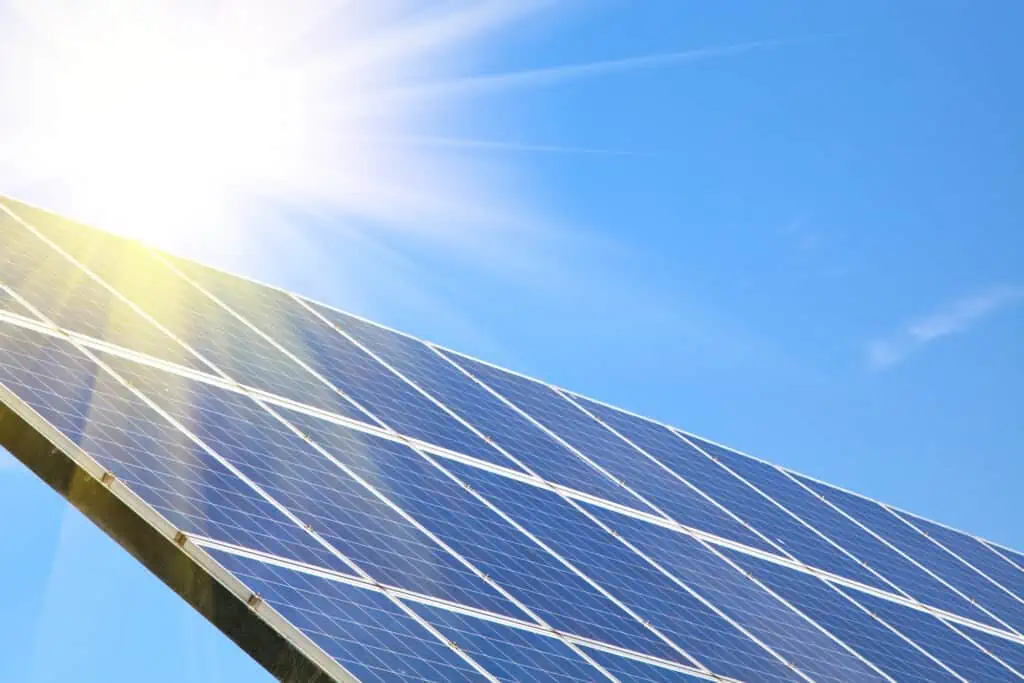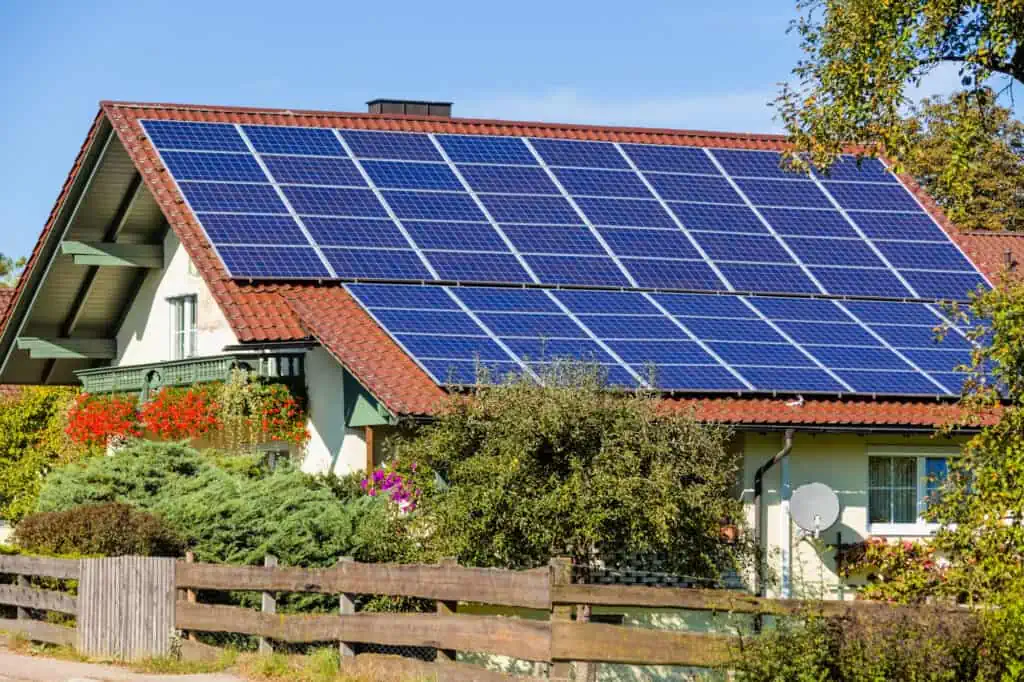Are you concerned about the state of the environment and the increasing effects of climate change? If you’re looking for ways to make a positive impact, going solar might just be the solution!
Solar energy is a sustainable and renewable source of electricity. It also offers a multitude of benefits for the environment.
By harnessing the power of the sun, you can reduce your carbon footprint. You’ll also contribute to a cleaner and greener future.
Let’s explore the various reasons why going solar is a smart choice for the environment!
Contents
- 1 Why Go Solar?
- 1.1 1. Solar Energy Reduces Carbon Emissions
- 1.2 2. Solar Power Decreases Dependence on Fossil Fuels
- 1.3 3. Renewable Energy Sources Help Combat Climate Change
- 1.4 4. Solar Panels Reduce Air Pollution
- 1.5 5. Solar Energy Helps Conserve Water Resources
- 1.6 6. Solar Power Promotes Sustainable Development
- 1.7 7. Solar Energy Reduces Land Degradation and Habitat Loss
- 1.8 8. Renewable Energy Sources Reduce the Risk of Oil Spills and Accidents
- 1.9 9. Solar Panels Can Help Reduce Landfill Waste
- 1.10 10. Solar Energy Helps Preserve Natural Resources
- 2 What Are the Costs of Installing a Solar Panel System?
- 3 What’s In Store for Solar Energy?
- 4 Switching to Solar Power for Your Home
Why Go Solar?
Solar energy offers a range of benefits that make it an attractive option for environmentally conscious individuals and communities. Here are some of the reasons you should consider going solar:
1. Solar Energy Reduces Carbon Emissions
Fossil fuels are burned for electricity production. These traditional energy sources release a substantial amount of carbon dioxide and other greenhouse gases into the atmosphere.
These emissions contribute to climate change and air pollution. And both of these have severe implications for our environment and human health.
Solar energy, on the other hand, harnesses the power of the sun to generate electricity.
Solar panels convert sunlight into clean, renewable energy without any emissions or pollution. According to the University of Michigan Center for Sustainable Studies, solar panels do not release carbon dioxide when they produce electricity.
By using solar energy instead of fossil fuels, we can significantly reduce our carbon footprint.
2. Solar Power Decreases Dependence on Fossil Fuels
Fossil fuels, such as coal, oil, and natural gas, are finite resources that are harmful to the environment. They also significantly contribute to climate change.
But by harnessing the power of the sun, solar power provides a decentralized energy solution.
With solar panels, you don’t have to rely on large power plants and extensive transmission systems. These panels can be installed on rooftops, in parking lots, or in remote areas.
This decentralized nature of solar energy enhances energy resilience. It also enables communities to generate their own electricity.
As such, it reduces the need for long-distance transmission. It also improves the overall reliability of the energy grid.
3. Renewable Energy Sources Help Combat Climate Change
Climate change is one of the most pressing global issues of our time. And it is caused primarily by the burning of fossil fuels for energy production.
By transitioning to renewable sources of energy like solar power, we can reduce the amount of greenhouse gases released into the atmosphere. This, in turn, helps to slow down the rate of global warming.
4. Solar Panels Reduce Air Pollution
By switching to solar energy, we can significantly reduce the amount of air pollution generated by electricity production.
Solar panels harness the power of the sun to generate electricity without any emissions or pollutants. This clean energy source helps improve air quality. It also mitigates the negative impacts of traditional energy generation methods.
Reducing air pollution has numerous environmental benefits. Here are some of them:
- Improvement in the overall air quality. This has a direct impact on human health. Air pollution is linked to respiratory problems, cardiovascular diseases, and even cancer. By adopting solar energy, we can create a healthier environment for ourselves and future generations.
- Preservation of ecosystems and biodiversity. Air pollution not only harms human health. It also has detrimental effects on plants, animals, and ecosystems. By reducing air pollution, solar energy helps protect wildlife, improve soil quality, and preserve natural habitats.
5. Solar Energy Helps Conserve Water Resources
Traditional methods of electricity generation (fossil fuel power plants) require vast amounts of water for cooling and other operational processes.
In contrast, solar energy systems have a minimal water footprint. This makes them an eco-friendly choice for conserving our precious water resources.
Solar panels do not require water for their day-to-day operations. Once installed, they generate electricity by harnessing the sun’s energy without the need for any additional water input.
This is particularly crucial in regions experiencing water scarcity or drought conditions, where every drop counts.
Solar energy can also alleviate water pollution concerns. Traditional energy sources, such as coal and natural gas, often produce harmful pollutants that can contaminate water sources. These pollutants can have detrimental effects on aquatic ecosystems and human health.
By embracing solar energy, we can significantly reduce the pollution associated with conventional energy generation. And thus, we can protect our water resources from contamination.
Lastly, solar energy systems can be integrated with water management practices. This is to further enhance water conservation efforts.
For example, solar-powered irrigation systems can be used in agriculture to efficiently water crops. This minimizes water wastage.
Solar energy can also power desalination plants, which convert seawater into freshwater. This provides a sustainable solution for regions facing freshwater shortages.
6. Solar Power Promotes Sustainable Development
Sustainable development means meeting our present needs without compromising the ability of future generations to meet their own needs. And solar energy plays a crucial role in achieving this goal.
Firstly, solar power is a renewable energy source. Its energy is derived from the sun. And it will continue to be available as long as the sun exists.
This means that with solar power, we can enjoy energy independence from non-renewable energy sources. We are also ensuring a more sustainable future.
Moreover, the installation of solar panels on rooftops and vacant land can also have positive socio-economic impacts. These include:
- Creation of job opportunities in the solar industry
- Stimulation of local economies
- Reduced reliance on imported energy sources
This localized energy production contributes to the sustainable development of communities. It also enhances resilience to external energy shocks.
7. Solar Energy Reduces Land Degradation and Habitat Loss
One of the lesser-known benefits of solar energy is its ability to reduce land degradation and habitat loss.
Traditional sources of energy require large amounts of land for extraction, processing, and storage. This often leads to deforestation, habitat destruction, and the displacement of wildlife.
On the other hand, solar technology can be installed on existing structures like rooftops or on unused land. This means that there is no need for additional land use or destruction of natural habitats.
By utilizing solar energy, we can minimize the negative impact on ecosystems and preserve the biodiversity of our planet.
Furthermore, solar energy can also be integrated into agricultural practices. Farmers can install solar panels on their land. This not only generates clean energy but also provides shade for crops and livestock.
This dual-purpose use of land allows for sustainable agricultural practices without compromising energy production or harming the environment.
Solar energy also helps to combat soil erosion. Traditional energy sources often require extensive mining, drilling, and excavation. These can disrupt soil structures and lead to erosion.
But solar energy does not involve any such activities, thereby preserving the integrity of the soil and preventing erosion.
8. Renewable Energy Sources Reduce the Risk of Oil Spills and Accidents
Oil spills can have devastating effects on the environment, wildlife, and ecosystems. When oil is spilled into oceans, rivers, or land, it can contaminate water sources, kill marine life, and damage habitats.
These spills often take years or even decades to clean up fully. And the environmental impact can be long-lasting.
Luckily, solar energy does not require the extraction, transportation, or combustion of oil. This eliminates the potential for oil spills and related accidents.
The use of solar panels eliminates the need for oil-based power plants, which are prone to accidents and oil spills.
Solar energy also helps to reduce the demand for offshore drilling, which poses a substantial risk of oil spills.
Offshore drilling activities are complex and involve significant logistical challenges. These make accidents and spills more likely.
Accidents involving oil transportation, such as tanker spills or pipeline leaks, can also be mitigated through the adoption of solar energy.
Solar power generates electricity locally. This eliminates the need for long-distance transportation of fuel.
This reduces the risks associated with oil transportation, including accidents that can occur during loading, unloading, or transportation processes.
9. Solar Panels Can Help Reduce Landfill Waste
Solar panels have a long lifespan, typically around 25 to 30 years. And at the end of their life, they can be recycled.
Instead of ending up in a landfill, solar panels can be dismantled and their components reused. They wouldn’t have to take up valuable space and potentially release harmful toxins.
Moreover, the recycling process of solar panels also helps to reduce energy consumption and greenhouse gas emissions.
Manufacturing new solar panels requires a significant amount of energy. But by recycling the old ones, we can reduce the energy needed for production.
By recycling solar panels, we can also prevent harmful substances from being released into the environment.
Some solar panels contain toxic materials such as lead and cadmium. These can pose risks to human health and the ecosystem if not properly managed.
Recycling ensures that these hazardous materials are safely handled and do not end up polluting our air, water, or soil.
10. Solar Energy Helps Preserve Natural Resources
By harnessing solar energy, we reduce our reliance on non-renewable resources like coal, oil, and natural gas.
These resources take millions of years to form. And they are rapidly depleting due to our increasing energy consumption.
By transitioning to solar power, we can minimize the extraction and burning of these fossil fuels. And instead, we can preserve them for future generations.
What Are the Costs of Installing a Solar Panel System?
When considering the benefits of solar energy, it’s important to also take into account the costs of installing a solar panel system.
Solar energy is a renewable and environmentally friendly source of power. But the initial investment can be a major consideration for homeowners and businesses.
The costs of installing a solar panel system can vary depending on several factors:
- Size of the system
- Location
- Specific needs of the property
Regardless, the long-term savings and benefits of solar energy often outweigh the upfront costs.
1. Solar Panel Costs
One of the main costs associated with installing a solar panel system is the equipment itself. This includes solar panels, inverters, mounting systems, and other necessary components.
The good news is that the price of solar panels has significantly decreased in recent years. They are now more affordable for homeowners and businesses.
There are also various financing options and incentives available that can help offset the initial costs.
2. Installation and Labor Fees
It would be best to hire a professional installer for your residential solar panel system. This is to ensure the system is properly installed and connected to the electrical grid.
While this may incur additional costs, it is essential for the long-term performance and efficiency of the system.
3. Structural Modifications
In some cases, structural modifications may be required to accommodate the solar panel system.
This can include reinforcing the roof or installing additional support structures. These costs should be factored into the overall installation expenses.
4. Ongoing Maintenance and Monitoring Costs
Solar panels are generally low-maintenance. But regular inspections and cleaning may be necessary to ensure optimal performance.
Some solar panel systems also come with monitoring software. This allows homeowners and businesses to track their energy production and usage.
These monitoring systems may involve additional costs. But they can provide valuable insights into the system’s efficiency and savings.
Long-Term Benefits of Solar Panels
Despite these costs, it’s important to look at the long-term benefits of installing a solar panel system.
Solar energy can significantly reduce or eliminate monthly electricity bills. This means they can provide substantial savings over time.
Many governments and utility companies also offer incentives, tax credits, and net metering programs. These can further offset the costs and increase the financial benefits of going solar.
What’s In Store for Solar Energy?
The future of solar energy is looking bright. (Pun intended!)
With advancements in technology and a growing awareness of the importance of renewable energy sources, there are exciting developments on the horizon for solar power. These include:
- Improvement in solar panel efficiency
- Growing community of solar enthusiasts and advocates
- Integration of solar power into everyday objects and infrastructure
- Growing emphasis on solar energy in government policies and initiatives
The future of solar energy is filled with exciting possibilities! It is set to become an even more prominent and accessible source of renewable energy.
Switching to Solar Power for Your Home
Going solar is not just a smart choice for your wallet but also for the future of our planet.
By harnessing the power of the sun, we can reduce our carbon footprint and combat climate change. We can also create a cleaner, more sustainable world for generations to come.
So, let’s embrace the sun and let solar energy shine bright!
Want to learn more about solar energy? We got you!
Solar Comparison has a wide array of articles related to solar power. These will teach you everything you need to know to make an informed decision. (Spoiler alert: Going solar is more than worth it!)
If you have specific questions, please don’t hesitate to get in touch with us. We will be happy to assist you in your journey to a more sustainable future.




